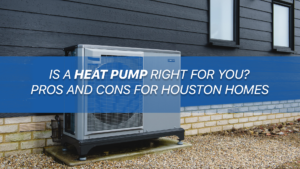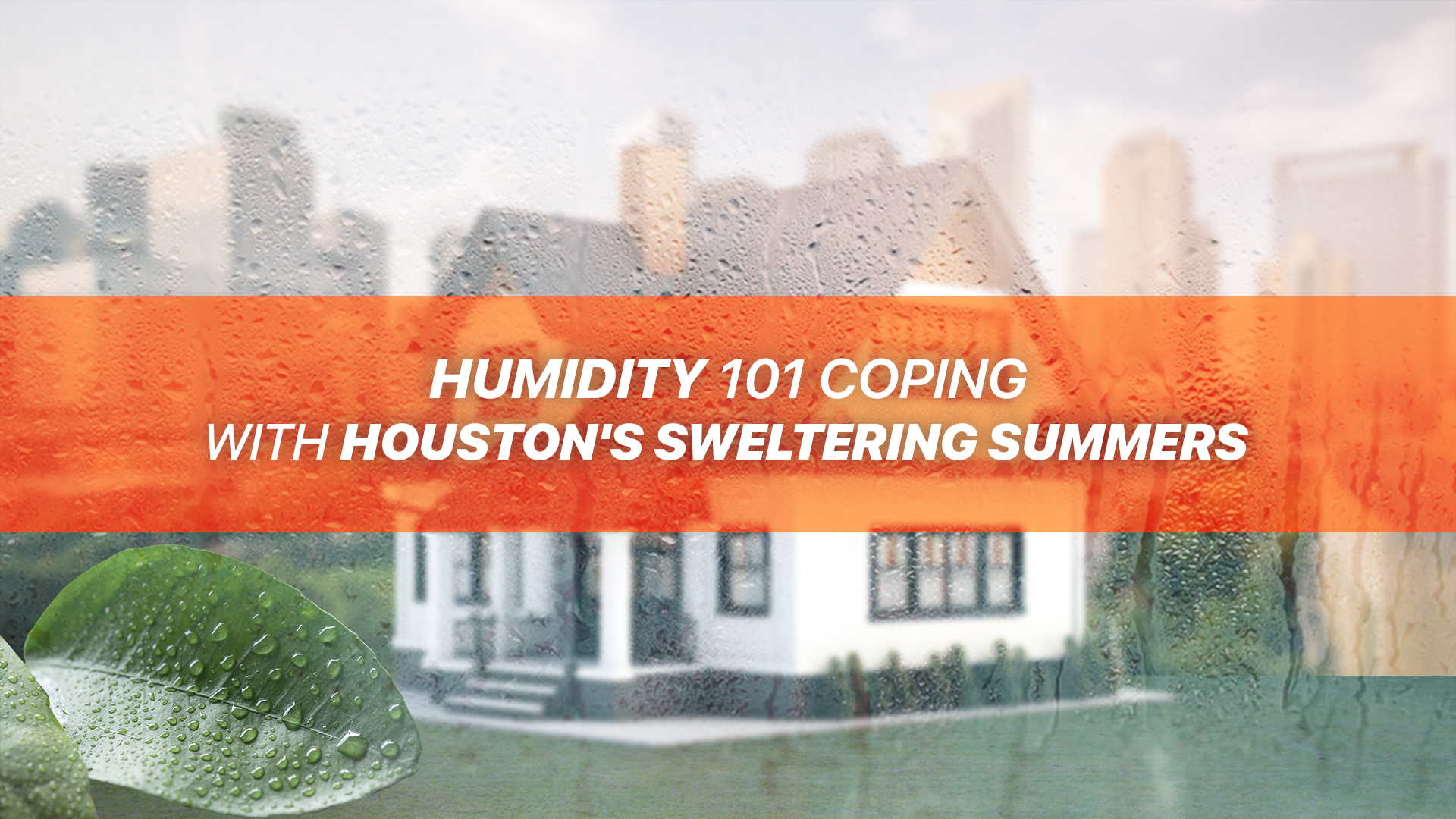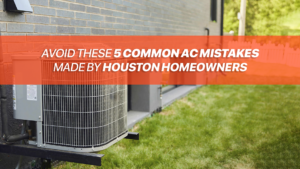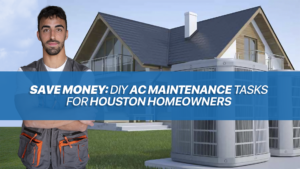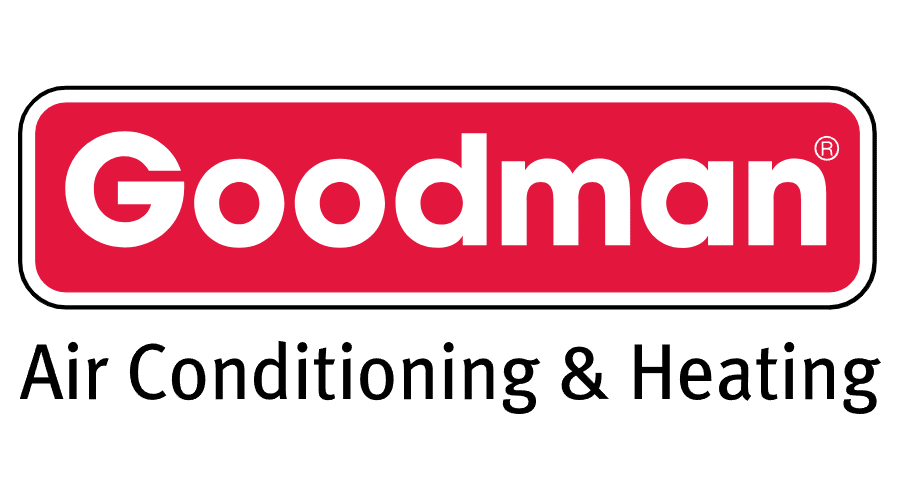Humidity 101: Coping with Houston’s Sweltering Summers
Houston is infamous for its hot and humid summers. While the sun bears down with temperatures in the 90s, moisture in the air makes it feel even hotter. This combination of heat and humidity can make homes feel unbearable during the summer months.
Fortunately, Houston homeowners can take steps to manage the humidity levels indoors. With a few clever tips and tricks, you can keep your home feeling comfortable even during the most sweltering days of a Houston summer.
How Humidity Affects Your Home
To understand how to control humidity, it helps to first understand what causes it. Humidity refers to the amount of moisture in the air. It is measured as relative humidity, which is the percentage of water vapor present in the air compared to the maximum amount the air can hold at a given temperature.
Houston experiences high relative humidity levels in the summertime for two main reasons:
- Proximity to the Gulf of Mexico – As a coastal city, Houston lies right next to a major source of moisture. The humid marine air from the Gulf flows into the region, resulting in muggy outdoor conditions.
- Hot temperatures – Warmer air can hold more moisture than cooler air. So when temperatures rise into the 90s during Houston summers, the warm air has capacity to contain a lot of moisture evaporated from the Gulf waters.
This moisture-laden outdoor air then finds its way into homes through open windows, doors, and leaks. Additionally, activities like cooking, showering, and even breathing add extra humidity to the indoor environment.
High humidity causes a range of problems:
- Discomfort – Humid air prevents sweat from evaporating efficiently. This makes homes feel stickier and more oppressive.
- Condensation – Moisture condenses on cool surfaces like windows and tiles. Excess condensation can lead to mold growth.
- Stuffiness – Stagnant humid air makes rooms feel stale and smell moldy. Allergies and asthma can worsen.
- Higher energy bills – Your AC has to work harder to remove moisture from the air. This increases energy consumption significantly.
Controlling humidity is crucial for staying comfortable and avoiding problems in your Houston home.
Ideal Humidity Levels
Before implementing humidity control measures, it helps to know what humidity level you should aim for. The ideal indoor humidity range is between 30% to 50% relative humidity. Maintaining humidity in this zone minimizes condensation and dust mites while still keeping air feeling fresh. Humidity levels below 30% tend to dry out sinuses, skin and wood furniture. Above 50%, mold, bacteria and viruses thrive.
For Houston’s climate, it is advisable to run your AC to keep humidity towards the lower end of the ideal range. Between 30% to 40% relative humidity is optimal for summer. Use hygrometers or humidity monitors to check moisture levels in your home. Place monitors in high-humidity areas like bathrooms and basements. Adjust your humidity control efforts until you hit the 30-40% summer target.
5 Tips to Control Humidity at Home
Controlling indoor humidity during Houston summers is crucial for comfort and health. Here are 5 effective tips:
1. Run AC Continuously
Air conditioners don’t just lower air temperature – they also remove moisture. Set your home’s thermostat to a comfortable temperature between 72-76°F and let the AC run continuously rather than turning it on and off. Keeping it on constantly will dehumidify the air without letting moisture build back up.
2. Use Dehumidifiers
For problem areas like basements or garages, use standalone dehumidifiers to aggressively cut humidity levels. Look for units with a large pint capacity and Energy Star rating. Place dehumidifiers on the warmest, dampest floor of the problem room and empty the tank regularly.
3. Ventilate Properly
Don’t lock in humid outdoor air. Turn on bath and kitchen exhaust fans while cooking or showering to vent out moisture. Open windows in the evening when humidity drops. Keep attics and crawl spaces ventilated.
4. Insulate Against Outdoor Humidity
Seal any leaks and cracks where humid outdoor air can sneak into your home. Ensure attics and walls are properly insulated. Upgrade to double pane windows. External insulation and vapor barriers keep moist air out.
5. Limit Internal Moisture Sources
Run appliances that produce moisture (like dryers, stoves and humidifiers) less frequently. Fix any plumbing leaks. Ventilate and dry out wet areas quickly after baths or cleaning. Keep indoor plants to a minimum and avoid large aquariums.
Advanced Humidity Control for Houston Homes
In addition to those basic tips, Houston homeowners dealing with severe humidity issues may need to upgrade to more advanced solutions:
Ductless Mini-Split Units
These systems allow different rooms to be cooled to different temperatures, so you dont have to overcool the whole house to reach comfort in the hottest rooms. Zoned temperature control saves energy and removes humidity room-by-room.
Variable Speed AC
Rather than cycling on and off at full power, variable speed systems can run continuously at lower speeds. This provides steady, gradual dehumidification without drastic temperature swings.
Smart Thermostats
Programmable and WiFi connected smart thermostats let you carefully control the cooling schedule. You can optimize run times for both temperature regulation and humidity removal.
ERV Ventilators
Energy recovery ventilators (ERVs) continuously bring in fresh outside air while removing equal amounts of stale indoor air. Sophisticated ERVs even transfer heat and moisture between the inbound and outbound air streams.
Whole House Dehumidifiers
These heavy duty de-humidification systems are integrated right into your central ACs ductwork to dehumidify the entire home. Look for Energy Star rated models.
While those solutions require some investment, they offer powerful humidity control for Houstons climate. Consult local HVAC experts to explore advanced options tailored for your home.
Maintenance Tips for Humidity Control
Proper maintenance ensures your HVAC equipment can operate efficiently to remove humidity:
- Change filters – Clogged filters reduce airflow and dehumidification capacity. Change disposable filters every 1-3 months.
- Clean coils – Dust on AC coils blocks heat transfer and reduces cooling power. Use a soft brush and hose to clean outdoor coils annually.
- Check insulation – Ensure insulation in attics, walls and ducts is sufficient. Add more as needed to prevent condensation issues.
- Clear drainage – Clear debris from AC drain lines so condensate can flow out easily. Clogs can cause water damage.
- Seal ducts – Repair loose connections and gaps in ductwork so cooled air doesnt leak out before dehumidifying your home.
With some preventative maintenance and the right humidity control tactics, you can beat the mugginess of Houston summers. Dont hesitate to call the experts at Turbo Home Services at (281) 626-5938 if you need help analyzing your homes humidity issues and finding the right solutions. With the proper strategies, you can enjoy indoor comfort all summer long, even when its sweltering outside.
